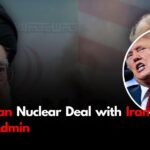On Saturday, Prime Minister Shehbaz Sharif enthusiastically greeted the Permanent Court of Arbitration’s Supplemental Award under the 1960 Indus Waters Treaty. He stressed how important it was for Pakistan’s water rights and diplomacy in the region.
What the Award Said
The court made it clear that India cannot stop or put the treaty on hold on its own, and it also said that it has the power to continue actions that Pakistan started. It made it clear that arbitration and other ways to settle disputes are still acceptable, even if New Delhi acts on its own.
Shehbaz on Water: “Pakistan’s Lifeline”
In a statement from the Prime Minister’s office, Shehbaz said that water is crucial for Pakistan’s survival. He said, “We are working on our water resources because water is the lifeline for the people of the country,” and he commended the legal team for their good work.
He officially praised Law Minister Azam Nazeer Tarar and Attorney General Mansoor Awan for their dedication to preserving Pakistan’s rights through international legal systems.
A Big Step Forward in Law and Diplomacy
Experts say that the extra award is a strong sign of Pakistan’s diplomatic position. As Daily Times pointed out, this strengthens Pakistan’s case that any unilateral suspension is unlawful and that the pact is still legally binding.
The Arab News report went on to say that the court rejected all of India’s concerns and that it was still responsible for fair and efficient adjudication under the Treaty.
What this means for relations between the two countries
This decision has diplomatic weight since it strengthens the most important water-sharing agreement in South Asia and reminds both countries of their duties under international law. It also opens the door for India and Pakistan to talk again about the Treaty and other relevant problems.
Shehbaz asked India to start real talks again this week, not just about water but also about commerce, terrorism, and Kashmir. He said again that Pakistan was willing to talk.
What’s next?
The Supplemental Award sets the foundation for the focus on the merits phase, which might include technical evaluations of future hydropower projects and water rights. Pakistan is now very interested in what would happen next with its objections.
Last Thoughts
The fact that Prime Minister Shehbaz accepted the arbitration court’s decision shows that Islamabad is serious about protecting Pakistan’s water rights through the law. It is both a diplomatic statement and a legal defense, showing that Islamabad will use international methods instead of territorial brinkmanship.
Pakistan stresses the need of sustainable resource management and rule-based diplomacy in maintaining stability in South Asia by saying that “water is our lifeline.” The next step is to use this verdict to start a positive conversation and make sure that millions of people have access to safe water.








